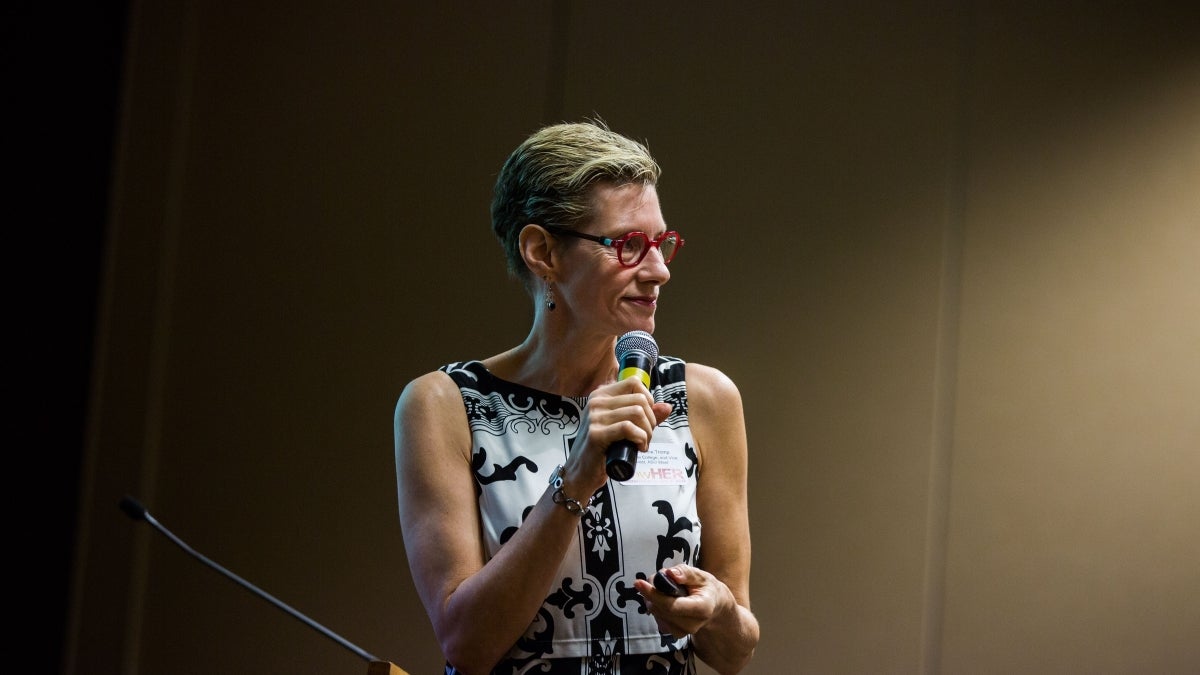It is the fear of the foreign. Dr. Marlene Tromp — yes, that’s an “o” — says the promises of Muslim bans, deportations and trade tariffs in this year’s U.S. political season and the immigration anger in Europe parallel the pages of the book she co-edited, “Fear, Loathing and Victorian Xenophobia.”
Tromp is dean of the New College of Interdisciplinary Arts and Sciences at ASU’s West campus, and she answered a few questions about these similar waves of fear nearly two centuries apart.
Question: Why should we worry about xenophobia?
Answer: Xenophobia is a fear and loathing of the foreigner. It is the biggest “-ism” that we don’t talk about. Xenophobia is everywhere we look. It’s in every cultural context, and we don’t even see it.
We are fairly articulate about racism and sexism and other -isms. We investigate it, and we produce it and we critique it. We’re thoughtful about things like racism, and we have many people in academia and in society who are working really hard on that issue. But xenophobia, while it can be exacerbated by race or gender or class, is not about those differences. It is a fear of foreign-ness, distinct from and as important as those other “-isms.”
Xenophobia is something we haven’t been as articulate about, we haven't been as thoughtful about, we haven’t investigated in the same way. Our failure to see it has made it less likely for us to come up with meaningful ways to respond to it or even to be critically thoughtful about the choices that we’re making that might be produced by xenophobia. It’s everywhere, and we don’t see it.
Q: Your book focuses on the Victorian era, but xenophobia runs throughout history. What is special about right now?
A: I would say what’s different about the current moment that we are living in is as the boundaries between groups of people come down more and more, it becomes possible for people to pass across those landscapes where there used to be firm boundaries. Those borders are permeable, whether solid or imaginary, like the internet. It triggers a lot more of that fear, panic, loathing.
As technology has reduced those boundaries, and as global travel has reduced those boundaries, people move and engage with each other so much more freely. Even people moving within a nation, there is anxiety with new populations moving in and out of cities. That freedom has all these benefits, but it also produces enormous anxiety.
Q: In this election cycle, foreigners are getting blamed for problems that Americans face at home, but that's a political tool used before. Why does it still seem to work so well?
A: Xenophobia can become a lever that you pull to help people feel like there’s some way to fix other problems. If we expel all the foreigners, then we won’t have these problems, and we won’t feel threatened or disrupted. If we prevent foreigners from coming in, then they can’t hurt us. It becomes an easy answer to complex questions, and so it’s often one that people lean on.
I think Donald Trump is tapping into an enormous amount of cultural anxiety. I don’t know what’s going on in his head regarding those things, but talking about excluding Muslims or talking about building a wall or talking about crushing foreign trade deals is a way to say, “We don’t want any foreign engagement here or influence here.”
It is a powerful lever to pull that gives people a sense of reassurance that someone understands that they’re afraid. That’s an incredibly powerful political tool.
Q: How do we fix this?
A: On a personal level, having experience abroad helps you feel more empathetic when you receive a foreigner into your cultural context. It isn’t necessarily that you know more about the world — though that helps — but having those experiences of global travel yourself that make you more sensitive to what it feels like to be the foreign “other.”
At a policy level and a personal level, we don’t always stop to assess our affective response, the feelings that we have about foreigners specifically, in order to recognize that’s what we’re feeling. Those feelings aren’t necessarily bad or even wrong, but it’s that we don’t do the kind of intellectual investigation we need to in order to make appropriate decisions. Instead we often let fear drive those decisions instead of logic. It’s very powerful to be able to say, let’s think about this and actually ask the question, what’s best? What’s appropriate? What’s ethical? What’s fair?
We ought to ask those questions, particularly as Americans, when we say we’re founded on equality, and we believe in freedom of religion, and we believe in people having free movement across the country. What happens when we begin to peel away those freedoms? Are those really our own national values?
If we can elevate that to a level of conscious understanding, we have more intellectual power to make good decisions.
More Law, journalism and politics

Arizona secretary of state encourages students to vote
Arizona Secretary of State Adrian Fontes looked right and left, taking in the more than 100 students who gathered to hear him speak in room 103 of Wilson Hall.He then told the students in the Intro…

Peace advocate Bernice A. King to speak at ASU in October
Bernice A. King is committed to creating a more peaceful, just and humane world through nonviolent social change.“We cannot afford as normal the presence of injustice, inhumanity and violence,…

CNN’s Wolf Blitzer to receive 41st Walter Cronkite Award for Excellence in Journalism
Wolf Blitzer, the longtime CNN journalist and anchor of “The Situation Room With Wolf Blitzer,” will accept the 41st Walter Cronkite Award for Excellence in Journalism, Arizona State University has…
